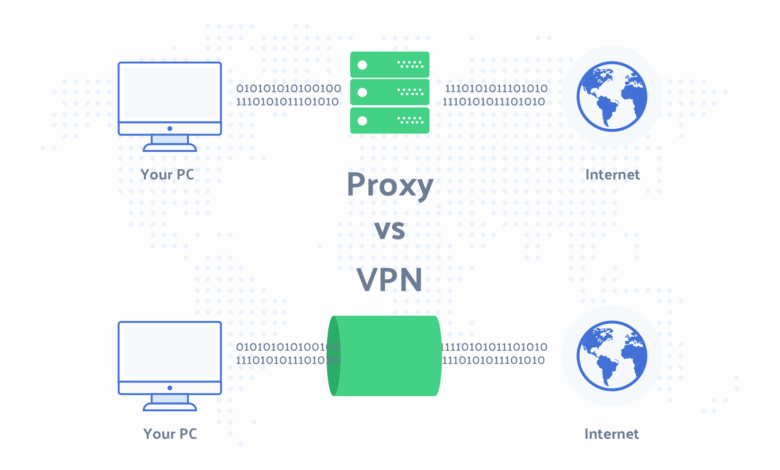Understanding VPN Proxies: What They Are and Why You Might Need One

Online data protection and data security are more important than ever in today’s digital age. With the rise in threats from cybercrime, mass surveillance, and business data tracking, Internet users are actively looking for tools to protect their identity and ensure safe surfing. The most popular solutions include VPNs and proxy terms that refer to a variety of interchangeable, frequently used, but that refer to a variety of technologies. In particular, a VPN proxy combines both elements. In this article, we will explore what a VPN proxy is, how it works, its benefits and limitations, and how it compares it to traditional VPNs and proxies. What is a VPN Proxy?
A VPN proxy is a tool that masks an IP address and redirects internet traffic through a remote server. It acts as an intermediary between your device and the internet, helping you to search anonymously and avoid geographical restrictions. VPN-Proxy is often used to describe optical proxy services offered by VPN companies (such as browser-based tools), but it is important to understand that it is not the same as a complete VPN (virtual private network).
VPN vs Proxy VS VPN Proxy
Proxy: A proxy server simply runs internet traffic through another server and masks its original IP address. However, most proxies only work at the application level (for example, web browsers) and do not encrypt traffic.
VPN: A VPN encrypts all internet traffic and forwards it through a secure server. This will protect your data from hackers, government surveillance, and even Internet Service Providers (ISPs). It works at the system level. This means that all traffic is protected from the device.
VPN -Proxy: This term usually refers to a browser extension provided by a VPN provider. It acts like a proxy server with additional safety features, but does not provide full system-wide encryption, such as a full VPN.
How does a VPN proxy work?
When you establish a connection to a VPN proxy (usually through a browser extension), data traffic is directed through a remote server managed by the VPN provider. This will mask your IP address and make it appear as if you are browsing from another location. Some VPN proxies provide HTTPS support to encrypt connections in your browser. However, this protection does not extend to other applications on the device. VPN proxying can help you with quick tasks like accessing geo-restricted websites and rotating content filters, but it is not ideal for processing sensitive data or protecting against threats across your device.
Benefits of using a VPN proxy
Bypass Geo Limitations: Many websites and streaming services restrict access to content based on location. A VPN proxy allows you to change your virtual location and access content that may be blocked in your country.
Improved anonymity: By hiding your IP address, VPN proxy complicates websites, advertisers and trackers that are more difficult to monitor online behaviour.
Restrictions from VPN Proxy
Limited Security: In contrast to a full VPN, a VPN proxy does not provide full encryption for the entire device. This reduces security, especially when dealing with sensitive information.
Application Area: VPN proxy only affects traffic within the browser. Other apps on your device, such as e-mail clients and messaging apps, are not protected.
Data Protection Lack of Guarantee: Some free VPN proxies can record user data and sell them to third parties. Always check your provider’s data protection directive before using the service.
When should I use a VPN proxy? VPN proxy is perfect for lightweight and casual browser activities that are highly secure and not critical. An example is:
Watching a geography-restricted video on YouTube
Read news articles from purchased local areas
Bypass filters at school or work (if allowed)
Quickly mask IP addresses without installing a full VPN
For activities like online banking, shopping, remote, and using public WiFi, a full VPN is a better choice with excellent encryption and protection.
Choosing the Right VPN Proxy
When choosing a VPN proxy, consider the following:
RUF: Choose a provider with a strong reputation for privacy and transparency.
Security: Make sure your proxy offers at least HTTPS support or some degree of encryption.
Server Location: Other server locations provide more flexibility to bypass geo-limits. Speed: Search for faster and more reliable proxy for success stories.
Conclusion
VPN proxies are valuable tools for improving online privacy and accessing blocked content, especially for users who want a quick and easy solution without the complexity of a full VPN. However, they come with limitations, particularly in terms of security and scope. Understanding the differences between proxies, VPNs, and VPN proxies can help you make an informed decision about which tool best suits your needs.



